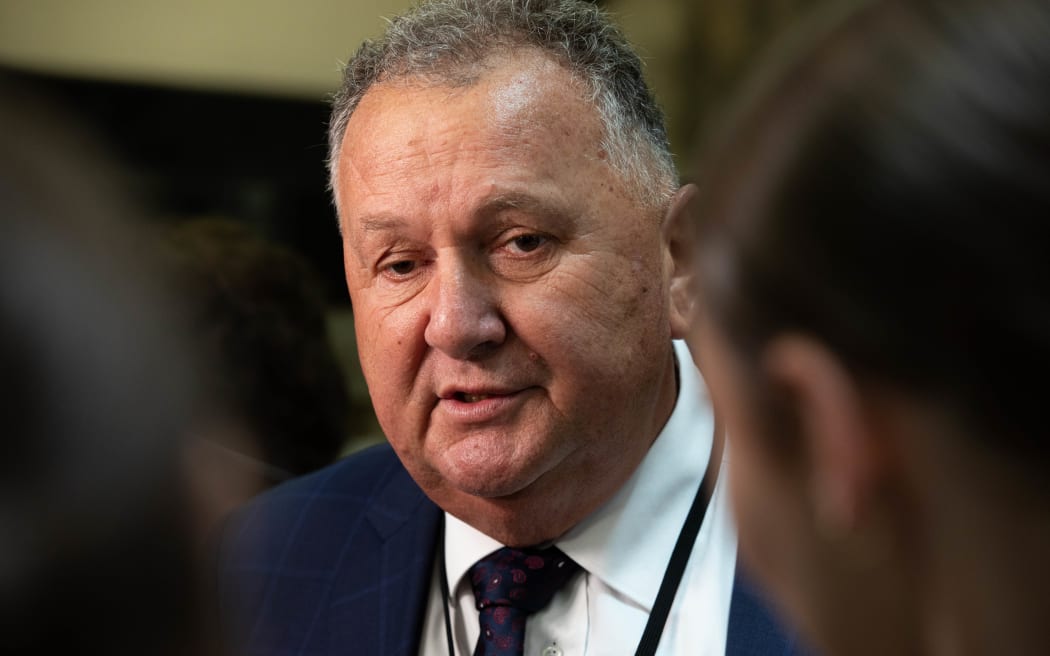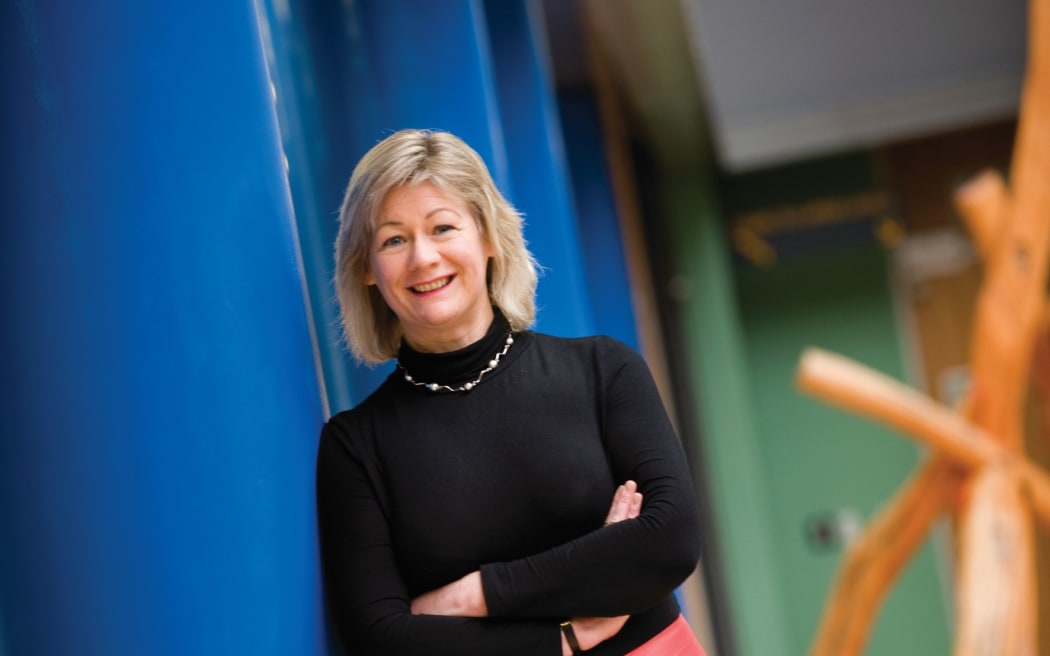
NZ First minister Shane Jones took "soundings" from Philip Morris external relations director Api Dawson on his party's tobacco policy. Photo: RNZ / Angus Dreaver
NZ First Minister Shane Jones says he's not interested in the rules ministers have to follow when engaging with people from the tobacco industry.
Jones is among government ministers whose links to the tobacco industry have been questioned, after New Zealand First gained concessions in its coalition agreement with National to repeal recent changes to tobacco laws.
Philip Morris external relations director Api Dawson - a former NZ First staffer - attended Jones' swearing-in ceremony last year. And Jones has said Dawson was involved in "soundings" about the party's tobacco policy.
New Zealand is a signatory to the Framework Convention on Tobacco Control. It includes a clause that obliges its parties to protect policy from tobacco industry influence and be completely transparent in its dealings with the industry.
Asked on Wednesday if he believed he had complied with the convention, Jones said: "Unless it was the Cabinet Manual, I don't know anything about it and I'm not giving it one iota of attention."
His position appears to be at odds with Prime Minister Christopher Luxon. In a written statement issued before Jones' comments, a spokesman for Luxon said the government "was well aware of its obligations under the Framework Convention on Tobacco Control and is confident in the processes it has in place to ensure compliance".
Too much 'catastrophising' about tobacco - Jones
Jones said there was "a great deal of catastrophisation and tainting" going on with people in the tobacco industry.
"Politicians that are seeking votes can talk to whoever they like during an election campaign. And the reality is that there's a great deal of catastrophisation and tainting going on with these people in the tobacco industry. They're running an industry that still, the last time I checked, was a legitimate part of the economy."
He said he was "an open book" during the election campaign.
"I have talked to industry, the coal industry, the mining industry, the tobacco industry, the agricultural industry."
Jones said he could not remember "at a detailed level" what soundings he took from Dawson but that he did not receive any written material.
Read more from RNZ's investigation into smokefree law repeal:
'Really hard questions' about compliance with transparency rules
Otago University public health professor Janet Hoek raised concerns with RNZ this week about ministers' interactions with the tobacco industry, saying it was "time that we start asking some really hard questions about this government's compliance with the Framework Convention on Tobacco Control".
The convention was ratified by New Zealand ratified in 2004.
Under the convention, the Health Ministry keeps a public record of its meetings with tobacco organisations and their representatives. A spokesman for Luxon also cited the proactive release of ministerial diaries on the Beehive website as a compliance measure. No diaries from Jones have yet been released.
But regardless of whether Jones was a minister at the time he talked to Dawson, "you just don't go taking soundings from the tobacco industry", Hoek said.

Professor Janet Hoek Photo: Supplied
Hoek was also alarmed by comments Prime Minister Christopher Luxon made last month, when asked about possible influence from the tobacco lobby, that politicians "talk to a range of people from a range of sectors".
"That is not code and that is not an excuse that the tobacco industry should be inputting deeply into your policy development," Luxon said.
But that was "not what you do when you're complying with [the convention]", Hoek said.
"You recognise that you engage with the industry only if you absolutely have to, and you make all dealings with the industry completely transparent."
Tobacco's harm to NZ
Last week, another NZ First Minister Casey Costello led the passage of legislation repealing smokefree measures passed under the previous government.
RNZ revealed officials urged the Costello to keep key aspects of the smokefree law.
The law would have slashed tobacco retailers from 6000 to 600, removed 95 percent of the nicotine from cigarettes and created a smokefree generation by banning sales to anyone born after 2009.
Official documents said an average of 12 New Zealanders die from smoking every day. The smokefree law was predicted to save $5.25 billion in health spending and nearly $6b in increased productivity over the lifetimes of New Zealanders alive in 2020.
Reducing nicotine alone would have reduced daily smoking rates for Māori women from 37 percent to 10 percent by 2025 and down to just 1.3 percent by 2030, officials told Costello.


